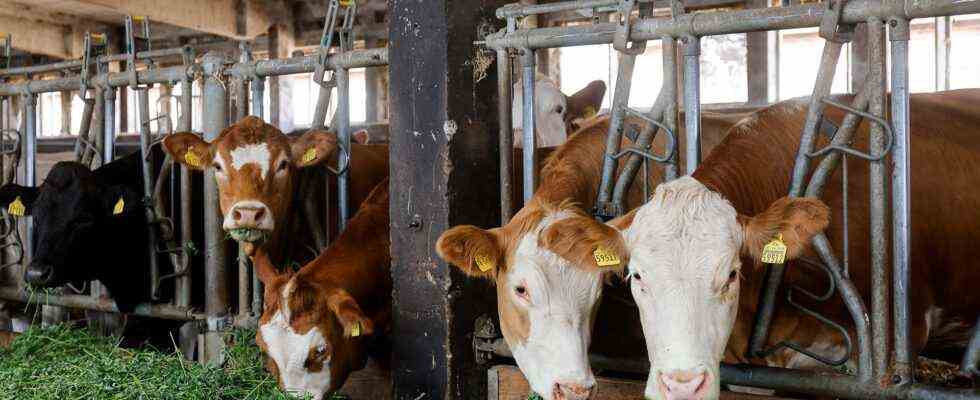Status: 17.09.2021 12:37 p.m.
There are many commitments but little progress in the fight against the climate crisis. The UN and the USA now want to accelerate the process with a new summit. Above all, emissions of the greenhouse gas methane are to be reduced.
Before the general election, everyone in this country is talking about climate protection – but little is happening internationally at the moment. This week, the think tank Climate Action Tracker CAT calculated that there have been hardly any new commitments from states on specific climate protection targets for 2030 for months.
After the clear announcements by the EU and the USA in April, it has become quiet: 70 states – more than a third of the signatories to the Paris Agreement – are not delivering. A dozen others – including Switzerland and New Zealand – have made even weaker commitments than before. The world is far from the common goal of limiting the temperature rise to 1.5 degrees.
Focus on methane
US President Joe Biden and UN Secretary General Antonio Guterres now want to bring new impetus to the matter with high-level meetings behind closed doors. At the “Major emitters forum”, Biden still wants to focus primarily on the greenhouse gas methane.
The USA and the EU have worked out a “global methane pledge”, which as many as possible should agree to. The core is the commitment to reduce methane emissions by at least 30 percent by 2030. Methane is the second most important greenhouse gas. And because it has a relatively short duration of action in the atmosphere, a reduction brings quick success in climate protection.
Agriculture as a major polluter
Germany is represented by the parliamentary state secretary in the Federal Environment Ministry, Rita Schwarzelühr-Sutter. However, it is still unclear whether Germany can even join the group of supporters. It doesn’t have as many methane emissions as others. They are mainly caused by leaks in oil and gas production. There they are easy to fight.
In our country, methane is mainly produced in agriculture by keeping cattle. The Climate Protection Act only provides for a reduction in greenhouse gas emissions of less than 20 percent for agriculture by 2030. The “global methane pledge” would therefore represent a significant tightening.
Consultations behind closed doors
It is unclear which other states will be represented and whether, for example, China’s head of state and government Xi Jinping will take part. He was present at Biden’s first such meeting in April. However, the US President probably learned the lesson from this event, which was public at the time, that this is only a way of capturing shop window speeches. Because he wants to achieve something substantial this time, the doors stay closed. It is also unclear whether there will be a review of the meeting afterwards, or whether it will be left to the states to publish their position themselves sooner or later.
Biden also wants to put pressure on the defaulting countries to deliver their climate protection commitments for 2030 before the UN climate summit in Glasgow. The meeting on Monday aims in the same direction. To this end, UN chief Guterres and the British Prime Minister have invited Johnson to host the climate summit in Glasgow. This meeting will also take place in camera on the fringes of the UN General Assembly. Chancellor Merkel will – like others – be virtually connected here.
More aid for developing countries
Guterres blames mistrust for the lack of progress in the international climate negotiations and said beforehand that the aim of these talks was to build trust. Some emerging countries would have to do more, but on the other hand the industrialized countries would finally have to meet their financial commitments. They have pledged to mobilize $ 100 billion annually to help poorer nations move towards a clean energy future. So far, however, only 80 billion euros have been raised.
The German State Secretary in the Ministry of the Environment, Jochen Flasbarth, is supposed to help here together with the Canadian Minister of the Environment. They should close the gap by the climate summit in Glasgow. The President-elect of this conference, Alok Sharma, has entrusted them with this. Guterres’ event is supposed to help.
The climate conference in Glasgow will take place in the first two weeks of November. “As things stand, we risk failure there,” Guterres warned this week.

